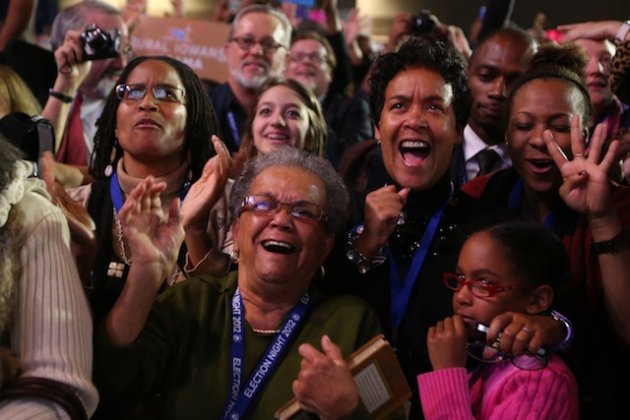'},"otherParams":{"t_e":1,".intl":"US"},"events":{"fetch":{lv:2,"sp":"2145892301","ps":"LREC,MON","npv":true,"bg":"#FFFFFF","em":escape('{"site-attribute":"_id=\'38c9a5d1-884c-3226-a2e9-00bf0b1e4f04\' rs=\'lmsid:a0770000002GZ5iAAG\' ctype=\'News\' ctopid=\'1499989;1550500;2299500;1507989;1506989;1542500;1550000;1507489;1092500;1055500;2063500\' can_suppress_ugc=\'1\' content=\'no_expandable;ajax_cert_expandable;\' ADSSA"}'),"em_orig":escape('{"site-attribute":"_id=\'38c9a5d1-884c-3226-a2e9-00bf0b1e4f04\' rs=\'lmsid:a0770000002GZ5iAAG\' ctype=\'News\' ctopid=\'1499989;1550500;2299500;1507989;1506989;1542500;1550000;1507489;1092500;1055500;2063500\' can_suppress_ugc=\'1\' content=\'no_expandable;ajax_cert_expandable;\' ADSSA"}')}}};var _createNodes=function(){var nIds=_conf.nodeIds;for(var i in nIds){var nId=nIds[i];var dId=_conf.destinationMap[nIds[i].replace("yom-","")];n=Y.one("#"+nId);if(n)var center=n.one("center");var node=Y.one("#"+dId);var nodeHTML;if(center && !node){nodeHTML=_conf.nodes[nId];center.insert(nodeHTML);};};};var _prepareNodes=function(){var nIds=_conf.nodeIds;for(var i in nIds){var nId=nIds[i];var dId=_conf.destinationMap[nIds[i].replace("yom-ad-","")];n=Y.one("#"+nId);if(n)var center=n.one("center");var node=Y.one("#"+dId);if(center && node){center.set("innerHTML","");center.insert(node);node.setStyle("display","block");};};};var _darla;var _config=function(){if(YAHOO.ads.darla){_darla = YAHOO.ads.darla;_createNodes();};};var _fetch=function(spaceid,adssa,ps){
if (typeof(ps)!='undefined')
_conf.events.fetch.ps = ps;if(typeof spaceid != "undefined") _conf.events.fetch.sp=spaceid;adssa = (typeof adssa != "undefined" && adssa != null) ? escape(adssa.replace(/\"/g, "'")) : "";_conf.events.fetch.em=_conf.events.fetch.em_orig.replace("ADSSA", adssa);if(_darla){_prepareNodes();_darla.setConfig(_conf);_darla.event("fetch");};};Y.on("domready", function(){_config();});;var that={"fetch":_fetch,"getNodes":_conf.nodes,"getConf":_conf};return that;}();/* Backwards compatibility - Assigning the latest instance to the main fetch function */YUI.PhotoAdsDarla.fetch=YUI.PhotoAdsDarla.photoslightboxdarla.fetch;
});
Y.later(10, this, function() {YAHOO.namespace('Media.Social').Lightbox = {};
});
Y.later(10, this, function() {Y.Media.Article.init();
});
Y.later(10, this, function() {new Y.Media.AuthorBadge();
});
Y.later(10, this, function() {new Y.Media.Branding();
});
Y.later(10, this, function() {Y.on("load", function () {
YUI.namespace("Media.SocialButtons");
var instances = YUI.Media.SocialButtons.instances || [],
globalConf = YAHOO.Media.SocialButtons.conf || {},
vplContainers = [];
Y.all(".ymsb").each(function (node) {
var id = node.get("id"),
conf = YAHOO.Media.SocialButtons.configs[id],
instance;
if (conf) {
instance = new Y.SocialButtons({
srcNode: node,
config: Y.merge(globalConf, conf.config || {}),
contentMetadata: conf.content || {},
tracking: conf.tracking || {}
});
vplContainers.push(
{
selector: "#" + id,
callback: function(node) { instance.render(); instance = conf = id = null; }
});
if (conf.config && conf.config.dynamic) {
instances.push(instance);
}
}
});
Y.Global.Media.ViewportLoader.addContainers(vplContainers);
YUI.Media.SocialButtons.instances = instances;
});
});
Y.later(10, this, function() {if (!Y.Media) {
return;
}
Y.Media.boba_lightbox_module_targets = Y.Media.boba_lightbox_module_targets || {};
Y.Media.boba_lightbox_module_configs = Y.Media.boba_lightbox_module_configs || {};
Y.Media.boba_lightbox_module_dataset = Y.Media.boba_lightbox_module_dataset || {};
Y.Media.boba_lightbox_module_whitelist = Y.Media.boba_lightbox_module_whitelist || {};
Y.Media.boba_lightbox_module_targets['lightbox20cfa37b468de4ed88976b3b9c620d87'] = {"lightboxId":"242c52af30c83b22ef4066d0fd107a6d","pivotId":"c93e3211-d7ba-342b-b200-20fbb1d985c9"};
Y.Media.boba_lightbox_module_dataset['242c52af30c83b22ef4066d0fd107a6d'] = {"spaceid":"2145892301","total":1,"photoby":"Photo By","xhrtype":"slideshow","videoconf":{"autoplay":true,"continuousPlay":true,"mute":false,"volume":"1.00","lang":"en-US","site":"news","region":"US","jurisdiction":"US","YVAP":{"accountId":"145","playContext":"default"},"pageSpaceId":"2145892301","comscoreC4":"US News","comscoreC6":"","showEmbedCode":true,"showShareUrl":true,"expName":"MediaArticleRelatedLightbox","expType":"inline","apiEnv":"prod"},"slideshow_id":null,"slideshow_title":null,"slideshow_title_baked_html":null,"slideshow_desc":null,"slideshow_rev":null,"slideshow_plink_vita":null,"photos":[{"type":"image","url":"http:\/\/l1.yimg.com\/bt\/api\/res\/1.2\/qbJuQyHAosuIaWgdBp0fzQ--\/YXBwaWQ9eW5ld3M7Zmk9aW5zZXQ7aD0yOTI7cT03OTt3PTQ1MA--\/http:\/\/media.zenfs.com\/en_us\/News\/Reuters\/2012-11-07T013313Z_4_CBRE8A5154200_RTROPTP_2_APPLE-IPAD-MINI.JPG","width":450,"height":292,"uuid":"c93e3211-d7ba-342b-b200-20fbb1d985c9","caption":"A customer looks over the iPad mini after the device went on sale at Apple's retail store in Palo Alto, California November 2, 2012. REUTERS\/Robert Galbraith","captionBakedHtml":"
A customer looks over the iPad mini after the device went on sale at Apple's retail store in Palo Alto, California November 2, 2012. REUTERS\/Robert Galbraith","date":"Tue, Nov 6, 2012 8:44 PM EST","credit":"Reuters","byline":"ROBERT GALBRAITH","provider":"Reuters","photo_title":"A customer looks over the iPad mini after the device went on sale at Apple's retail store in Palo Alto","pivot_alias_id":"customer-looks-over-ipad-mini-device-went-sale-photo-013313412","plink":"\/photos\/customer-looks-over-ipad-mini-device-went-sale-photo-013313412.html","plink_vita":"http:\/\/news.yahoo.com\/photos\/customer-looks-over-ipad-mini-device-went-sale-photo-013313412.html","srchtrm":"A customer looks over the iPad mini after the device went on sale at Apple's retail store in Palo Alto","revsp":"","rev":"a64435c0-287c-11e2-bbfb-72660cbb7c1f","surl":"http:\/\/l2.yimg.com\/bt\/api\/res\/1.2\/ezDaaQ_PgVL.c5HQv2L9wg--\/YXBwaWQ9eW5ld3M7Zmk9aW5zZXQ7aD01NjtxPTc5O3c9ODY-\/http:\/\/media.zenfs.com\/en_us\/News\/Reuters\/2012-11-07T013313Z_4_CBRE8A5154200_RTROPTP_2_APPLE-IPAD-MINI.JPG","swidth":86,"sheight":56}]};
Y.Media.boba_lightbox_module_configs['242c52af30c83b22ef4066d0fd107a6d'] = {"spaceid":"2145892301","ult_pt":"story-lightbox","darla_id":"","images_total":0,"xhr_url":"\/_xhr\/related-article\/lightbox\/?id=38c9a5d1-884c-3226-a2e9-00bf0b1e4f04","xhr_count":20,"autoplay_if_first_item_is_video":true};
});
Y.later(10, this, function() {new Y.Media.RelatedArticle({count:"2",start:"1",
mod_total:"10", total:"0",
content_id:"38c9a5d1-884c-3226-a2e9-00bf0b1e4f04",
spaceid:"2145892301",
related_count:"-1"
});
});
Y.later(10, this, function() {(function(d){
d.getElementsByTagName('head')[0].appendChild(d.createElement('script')).src='http://d.yimg.com/oq/js/csc_news-en-US-core.js';
})(document);
});
Y.later(10, this, function() {
if(!("Media" in YAHOO)){YAHOO.Media = {};}
if(!("ugcrate" in YAHOO.Media)){YAHOO.Media.ugcrate = {};}
if(!("Media" in Y)){Y.namespace("Media");}
YAHOO.Media.ugcrate.ratings_240cf625f097ce0da50503e11394e761 = new Y.Media.UgcRate({"context_id":"9563d0d6-df7d-4726-8e78-0957e6a90a3c","sCrumb":"qUlLifEMBMG","containerId":"yom-sentimentrate-240cf625f097ce0da50503e11394e761","rateDimensions":"d1","appLang":"en-US","sUltSId":"2145892301","sUltProperty":"news-en-US","sUltCampaign":"","sUltPlatform":"ugcwidgets","sUltIntl":"US","sUltLang":"en-US","selfPageUrl":"http:\/\/news.yahoo.com\/blogs\/ticket\/trump-election-meltdown-twitter-obama-march-washington-054449245--election.html?_esi=0","artContentId":"bd702bbb-0007-3479-8380-6084fb2a2998","sUltQstnTxt":"Are you optimistic about President Obama\\'s second term?","artContentTitle":"Trump\u2019s Twitter rant after Obama win: \u2018We should march on Washington and stop this\u2019","artContentDesc":"Donald Trump, the impossibly coiffed real estate mogul and de facto leader of the \\\"birther\\\" movement, had something of a Twitter meltdown in the wake of President Barack Obama\\'s projected victory in Tuesday\\'s election. \\\"Well, back to the drawing board!\\\" Trump tweeted shortly after several networks, including Fox News, called Ohio in the president\\'s favor, [...]","sUltBucketId":"test1","sUltSection":"sentirating","sUltBeaconUrl":"","sUltRecordPageviews":"1","sUltBeaconEnable":"1","serviceUrl":"\/_xhr","publisherContextId":"","propertyId":"2fcd79b5-b3a3-333e-b98e-722536a6698f","configurationId":"435db9ee-c55e-3766-b20d-c8ad3ff889d1","graphId":"","labelLeft":"Yes","labelRight":"No","labelMiddle":"","itemimg":"http:\/\/l.yimg.com\/a\/i\/ww\/met\/yahoo_logo_us_061509.png","selfURI":"","aggregateRatingCount":"120792","aggregateReviewCount":"0","leftBlocksNum":"69397","rightBlocksNum":"51394","leftBlocksPerCent":"57","rightBlocksPerCent":"43","ugcrate_apihost":"api01-us.ugcl.yahoo.com:4080","publisher_id":"news-en-US","yca_cert":"yahoo.ugccloud.app.trusted_proxies","timeout_write":"5000","through_proxy":"false","optionStats":"{\"s1\":57005,\"s2\":3876,\"s3\":2954,\"s4\":2832,\"s5\":2730,\"s6\":51394,\"s7\":0,\"s8\":0,\"s9\":0,\"s10\":0}","l10N":"{\"FIRST_TO_READ\":\"You are first to read this. Share your feelings and start a conversation.\",\"SHARE_YOUR_FEELINGS\":\"You too can share your feelings and start a conversation!\",\"HOW_YOUR_FRIENDS_THINK\":\"Share your response with your friends on Facebook\",\"PRE_SHARE_MSG\":\"Your Facebook friends on Yahoo! can see how you responded. To share your response on Facebook, click on the Facebook share option.\",\"START_THE_CONVERSATION\":\"Share\",\"THANKS_FOR_SHARING\":\"Your response has been shared with your friends on Facebook\",\"POLL_HEADER\":\"SOCIAL SENTIMENT\",\"SERVER_ERROR\":\"Oops there seems to be some error, please try again later\",\"LOADING\":\"Loading...\",\"SHARE_AFTER_COMMENT\":\"Your response has been shared on Facebook.\",\"UNDO\":\"Undo\",\"UNIT_PEOPLE\":\"People\",\"NUM_PEOPLE_DISAGREE\":\"disagree with your opinion.\",\"READ_MORE_TEXT\":\"Read what they have to say.\",\"SLIDER_THUMB_WORDING_BEFORE_VOTING\":\"WHAT DO YOU THINK?\",\"SLIDER_THUMB_WORDING_VERB_BEFORE_VOTING\":\"DRAG\",\"SLIDER_THUMB_WORDING_THANKS_VOTING\":\"Thanks for voting\",\"NUM_PEOPLE_ANSWERED\":\" 120,792 people have responded\",\"ONE_PERSON_ANSWERED\":\" 1 person has responded. Your response will be seen by your Facebook friends on Yahoo!\",\"TWO_PEOPLE_ANSWERED\":\" 2 people have responded. Your response will be seen by your Facebook friends on Yahoo!\",\"NUM_PEOPLE_ANSWERED_AND_SHARED\":\" 120,792 people have responded. Your response will be seen by your Facebook friends on Yahoo!\",\"NUM_PEOPLE_RATED__s1\":57005,\"NUM_PEOPLE_RATED__s2\":3876,\"NUM_PEOPLE_RATED__s3\":2954,\"NUM_PEOPLE_RATED__s4\":2832,\"NUM_PEOPLE_RATED__s5\":2730,\"NUM_PEOPLE_RATED__s6\":51394,\"NUM_PEOPLE_RATED__s7\":0,\"NUM_PEOPLE_RATED__s8\":0,\"NUM_PEOPLE_RATED__s9\":0,\"NUM_PEOPLE_RATED__s10\":0}","fbconfig":"{\"message\":\"undefined\",\"name\":\"undefined\",\"link\":\"\",\"source\":\"\",\"picture\":\"http:\\\/\\\/l.yimg.com\\\/a\\\/i\\\/ww\\\/news\\\/2011\\\/09\\\/27\\\/yahoo-tc.jpg\",\"description\":\"\",\"captionLeft\":\"undefined\",\"captionRight\":\"undefined\",\"app_id\":\"196660913708276\",\"redirect_uri\":\"\\\/_xhr\\\/ugcratefbredirect\\\/\"}","template_id":"LONG_SLIDER_SOUTH","obj_id":"ratings_240cf625f097ce0da50503e11394e761","opt_count":"6","opt_color1":"","opt_color2":"","template_html":"



